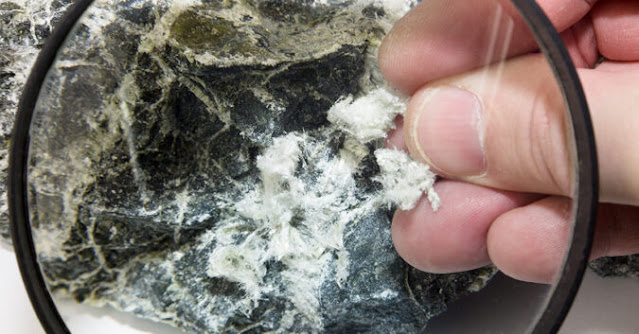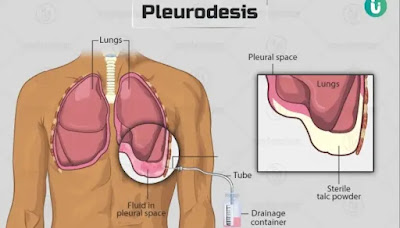Asbestos Poisoning: Understanding Its Causes, Symptoms, and Treatment Options
Asbestos poisoning encompasses numerous illnesses resulting from contact with asbestos, a naturally occurring mineral utilized in more than 3,000 items spanning industries like construction, automotive manufacturing, textiles, and household goods.
Throughout the 20th century, numerous companies producing or distributing asbestos-containing products obscured the associated risks from both employees and the general population, potentially endangering millions.
Sokolove
Law, a nationally recognized firm specializing in asbestos cases for over four
decades, has aided numerous victims of asbestos exposure and their families in
seeking compensation. They advocate for holding accountable the companies
responsible for the illnesses caused by asbestos exposure.
How Do You Get Asbestos Poisoning?
Asbestos
poisoning arises from inhaling or swallowing airborne asbestos fibers, leading
to subsequent illness.
Any
activity, such as cutting, drilling, sanding, or replacing asbestos-containing
materials, can release asbestos dust into the air, posing a significant health
hazard due to the minuscule size of the fibers.
Workers
handling asbestos might inadvertently carry these fibers on their clothing or
hair, unknowingly exposing their families to secondhand asbestos when they
return home, potentially jeopardizing the health of their loved ones.
What Asbestos Poisoning Does to the Body?
No amount
of asbestos exposure is considered safe. Upon inhalation or ingestion, asbestos
can penetrate the lungs, digestive tract, and other bodily regions, remaining
unprocessed as the body lacks the means to break it down. Consequently, these
fibers persist, causing gradual harm.
As quoted
by the Mesothelioma Applied Research Foundation, "Wherever these fibers
travel, they cause harm or alterations in cells they encounter."
The
prolonged presence of asbestos fibers may result in chronic irritation,
potentially culminating in the emergence of severe diseases over several
decades.
Potential
asbestos-related diseases include:
Asbestosis:
This non-cancerous condition triggers significant lung scarring, hampering
breathing. Continued scarring results in lung stiffening, which, in severe
cases, can prove fatal.
Lung
cancer: Asbestos exposure accounts for an estimated 8,000 to 10,000 annual lung
cancer fatalities, reports the Environmental Working Group.
Mesothelioma:
Each year, around 3,000 individuals receive a mesothelioma diagnosis, with
approximately one-third of cases involving U.S. veterans.
Other
asbestos-related cancers: Contact with asbestos heightens the risk of various
cancers throughout the body, including ovarian and throat cancer, among others.
Who Is Most at Risk of Asbestos Poisoning?
The most
vulnerable to asbestos exposure are workers whose careers involved frequent
contact with asbestos-containing materials, notably trade workers.
These
high-risk occupations encompass:
- Aircraft mechanics
- Auto mechanics
- Boilermakers
- Carpenters
- Construction workers
- Electricians
- Firefighters
- Insulators
- Painters
- Plumbers
- Shipyard workers
- Union workers
- U.S. Navyveterans
Even after retiring, these individuals remain at risk of developing ailments associated with asbestos exposure. Recognizing the risks and consulting a doctor upon exhibiting symptoms related to asbestos poisoning is crucial.
What Are the First Signs of Asbestos Poisoning?
Asbestos exposure often leads to symptoms that might not manifest for decades, leaving
individuals unaware of when or how they encountered asbestos.
Typical
symptoms of asbestos poisoning encompass:
- Chest pain
- Persistent cough
- Fatigue
- Breathing difficulties
- Weight loss
However,
as asbestos exposure can result in various illnesses, symptoms may differ.
If you're
encountering any of these indications, it's crucial to promptly consult your
doctor and discuss potential asbestos exposure. Screening tests can aid in
diagnosing potential asbestos-related diseases.
Asbestos Poisoning Treatment Options
Victims of
asbestos poisoning have the potential to enhance their quality of life and
extend their lifespan through seeking appropriate treatment. Treatment
approaches for asbestos poisoning vary based on the patient's diagnosis,
overall health, and individual factors.
- For noncancerous conditions like asbestosis, treatment might entail:
- Pulmonary rehabilitation to bolster lung function
- Utilization of portable oxygen tanks for supplemental oxygen
As for
asbestos-related cancers, treatments typically align with standard cancer
protocols, involving chemotherapy, radiation therapy, surgery, or a combination
of these methods.
Regrettably,
treatment expenses can be substantial, often exceeding insurance coverage.
Families affected by asbestos-related diseases may pursue compensation through
various means, and Sokolove Law is available to offer potential assistance in
these cases.
Sokolove Law: Fighting for Asbestos Poisoning Victims for Over 40
Years
No family
should face the financial challenges and uncertainties of asbestos-related
illnesses without support. If you or a loved one has received a diagnosis
related to asbestos exposure, our team of lawyers specializing in asbestos
cases is committed to providing assistance.
For more
than four decades, Sokolove Law has been dedicated to advocating for
individuals diagnosed with mesothelioma and other asbestos-related conditions,
successfully securing over $9.1 Billion in compensation for victims nationwide.
There are
several potential avenues for victims and their families to seek compensation:
Asbestos
trust funds: Companies accountable for asbestos-related harm established trusts
to compensate victims, with approximately $30 Billion still available in these
trusts.
Mesothelioma lawsuits: Legal action against responsible companies can seek accountability
for asbestos exposure. Settlements from such lawsuits, often settled outside of
court, typically range between $1 Million and $1.4 Million.
VA
benefits: Veterans and their families may qualify for monthly compensation and
healthcare benefits through the U.S. Department of Veterans Affairs (VA).
These
financial resources can assist in covering treatment costs and offer some
relief during this challenging time.




Comments
Post a Comment